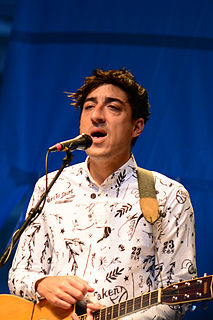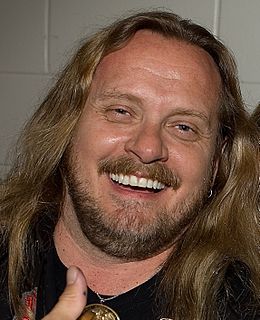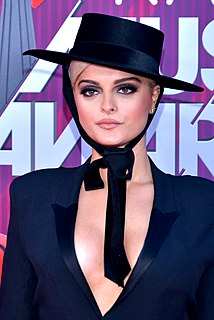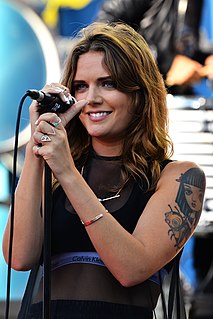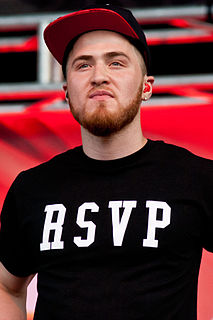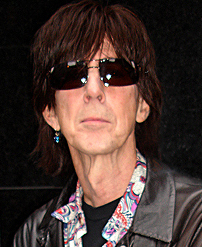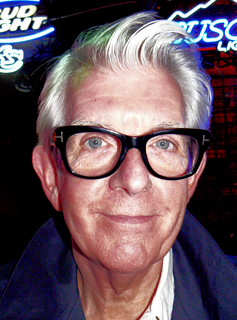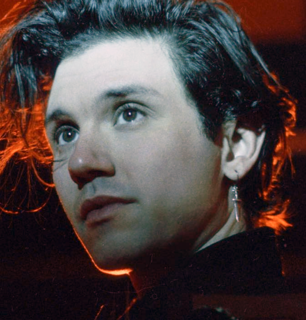A Quote by Ed Droste
It seems to be really trendy to get excited about a random-ass radio song. Which, I like radio songs, don't get me wrong. But I'm just confused at which ones seem to be heralded as some sort of genius-like concoction. It doesn't totally make sense to me.
Related Quotes
There are some nights where I don't get enough sleep, or we're traveling a lot. And then I'll go do a radio show, and the DJs are usually so energetic. And they're like, 'Why aren't you excited?' I say, 'I am excited. I'm just Swedish. This is my excited. I can't get to an American excitement level.'
I don't get particularly precious about things like this, though. Like the record company said, "We need a radio edit that delivers the hook" - I don't even know what they consider the hook in that song ["Oh No"] - "that delivers the hook sooner." So I'm like, "Okay. I see that." And they were all walking on eggshells, like is this going to be sacrilegious to me or something, to mess with this art I've created? And I'm like, "Great. I get to tinker with it, I get to mess with my song some more."
I wrote 'Turn Your Radio On' in 1937, and it was published in 1938. At this time radio was relatively new to the rural people, especially gospel music programs. I had become alert to the necessity of creating song titles, themes, and plots, and frequently people would call me and say, 'Turn your radio on, Albert, they're singing one of your songs on such-and-such a station.' It finally dawned on me to use their quote, 'Turn your radio on,' as a theme for a religious originated song, and this was the beginning of 'Turn Your Radio On' as we know it.
'Boneless,' even though we were thinking about servicing it to radio, it made more sense putting a vocal on there. This was actually the first time that I really looked at doing a song for radio and kind of let go of some control and listened to a lot of different radio pluggers and had Ultra come in and help out with ideas.
The best thing you can do for a song is to hear it on the radio and to imagine what it could mean to you and then kinda forget the words. Just imagine how you felt when you heard it, if it was one of your songs. If it became one of your songs. If it meant whatever it meant for you and as soon as you see the visual, you get a rapid eye movement relationship with the song instead of an imaginative one. I think that can be dangerous because I don't think I'd want to be listening to a song on the radio and thinking about the video. Whatever that one interpretation was
The older I get, the more I think it's this listening. You listen for it, and you have a bit of patience. And it'll come until it sounds - to me, the best songs I've written, I think, are ones that I can't hear anything - any of myself in it. It sounds like a cover song, like somebody else's song - really something you've stolen wholesale off a radio that you've listened to in someone else's flat.
To be honest, the search for a label was really weird, because some of the labels that you wouldn't expect to care about stuff like radio formats were the ones that did care. They were like, 'Yeah, we love this record, but what are we going to play on the radio?' And I was like, 'You don't have bands on the radio.'
The thing that bothers me is that it seems like all the sensitive stuff I write just goes unnoticed . . . the media doesn't get who I am at all. Or maybe they just can't accept it. It doesn't fit into those negative stories they like to write. I'm the kind of guy who is moved by a song like Don McLean's "Vincent," that one about Van Gogh. The lyric on that song is so touching. That's how I want to make my songs feel. Take "Dear Mama" - I aimed that one straight for my homies' heartstrings.
